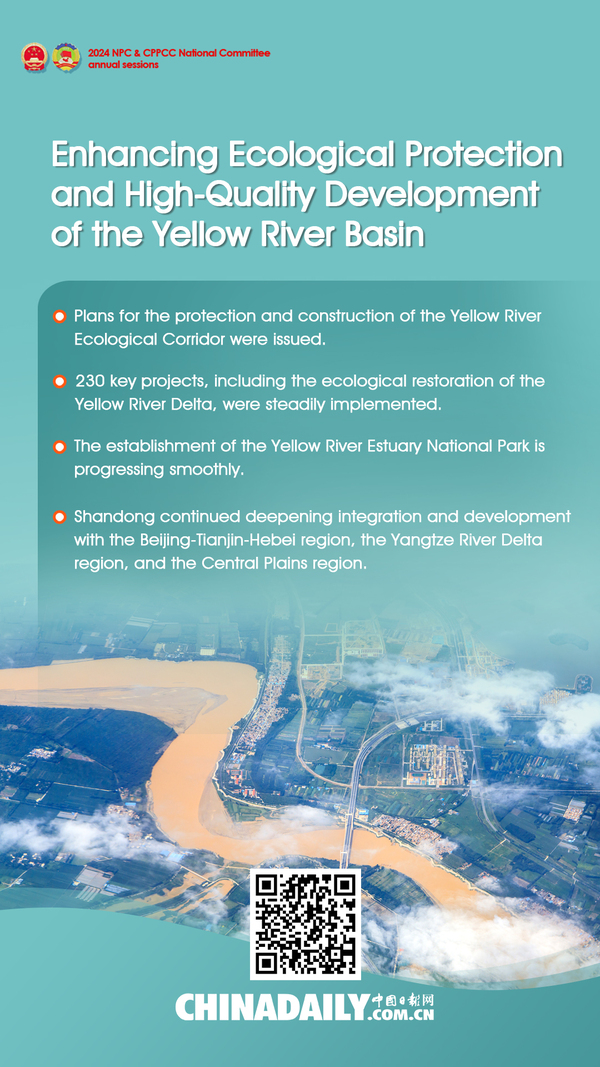Shandong upholds responsibility in national Yellow River strategy
(chinadaily.com.cn)| Updated : 2024-03-09
Print Print
Shandong province is striving to set a good example in the ecological protection and high-quality development of the Yellow River Basin.
The Yellow River Delta boasts the most intact and youngest coastal estuarine wetland ecosystem in China and serves as an important transit station for bird migration routes between East Asia and Australasia and the Circum-Pacific region.
"In January, we conducted synchronized surveys of overwintering cranes, monitoring five species including the red-crowned crane, hooded crane, white-naped crane, Siberian crane, and common crane, with a total of 5,267 specimens," said Zhao Yajie, senior engineer of the Yellow River Delta national nature reserve in Dongying, Shandong.
The construction of the Yellow River Estuary National Park is also progressing smoothly, with the former saline-alkaline wasteland being transformed into lush wetlands. Today, the Yellow River Delta is home to 1,764 species of wildlife and 411 species of plants, with the number of bird species increasing from 187 in 1992 to 383 today.
Shandong is promoting afforestation, greening, wetland expansion, and land improvement in an integrated manner and organizing the investigation and rectification of prominent ecological and environmental problems in the basin. Nine cities along the Yellow River afforested 203,000 mu (13,531 hectares) of land, and soil and water erosion control measures were implemented on a 28,000-hectare area of land in the Yimeng Mountain area.
At the beginning of the Chinese Lunar New Year, a large number of green projects started construction in various parts of Shandong. Those included Great Wall Group's Heavy Industry New Energy Engineering Machinery Project in Jining, Sinopharm's Life Port in Qingdao West Coast New Area and Wanhua Chemical Group's New Materials Low Carbon Industrial Park.
Shandong regards energy transformation as a key lever for green, low-carbon and high-quality development, promoting 100 major digital industry projects and launching the country's first data-enabled platform for the digital transformation of small and medium-sized enterprises.
In 2023, it cultivated 11 key industrial chains and 10 provincial advanced manufacturing clusters.

 Insights from the 10th Nishan Forum
Insights from the 10th Nishan Forum  Confucian culture thrives: Integrating its wisdom into modern value
Confucian culture thrives: Integrating its wisdom into modern value  Confucianism's enduring influence: Shaping East, Southeast Asian civilizations
Confucianism's enduring influence: Shaping East, Southeast Asian civilizations